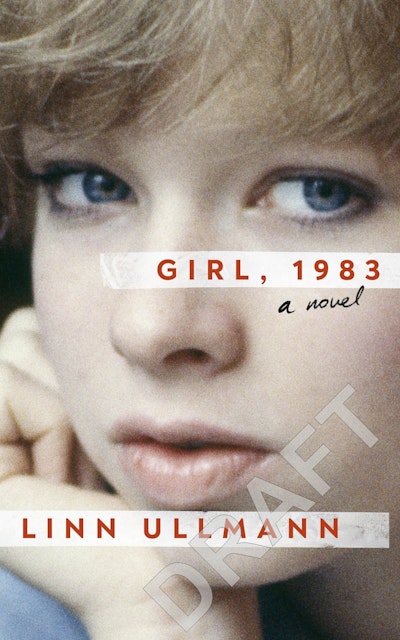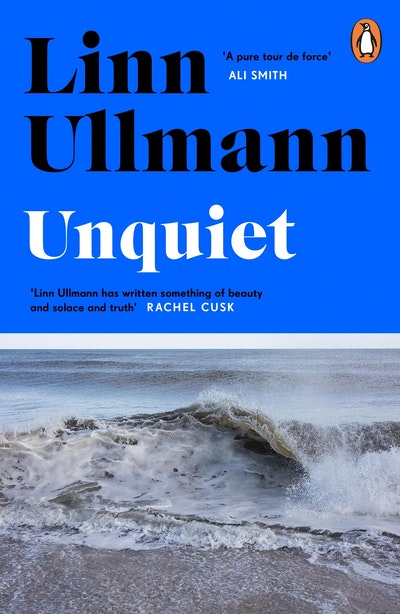Girl, 1983
- Published: 15 May 2025
- ISBN: 9780241999257
- Imprint: Penguin eBooks
- Format: EBook
- Pages: 272
Linn Ullmann’s new novel, Girl, 1983, is both beautiful and unsettling. A slow exploration of the narrator’s past becomes a quiet and disturbing interrogation of the world’s treatment of young women. Here beauty is a dangerous possession, drawing its owner into silence and complicity with those who would harm her. Brava to Ullmann for bravely taking on this dark subject, one which permeates our culture
Roxana Robinson
Linn Ullmann's writing, already distinct for its rare moral clarity, attains a new authority in Girl, 1983. It is the authority of focus, of a grip on life that grows more tenacious as its scope determinedly narrows. In the manner of Annie Ernaux, Ullmann uses the act of attention as a weapon against indifference. It is as though, by reconstructing the disorder of certain realities, she is able to confer sanity on them. Yet there is also a brightness and generosity to her work that seems to turn its themes - the powerlessness of youth and femininity, the intermingling of memory and shame - inside out
Rachel Cusk
An engrossing, intimate narrative . . . award-winning novelist Ullmann meditates on memory, anxiety, and loss in a disquieting tale . . . In precise, lyrical prose, Ullmann creates a captivating portrait of a woman in search of herself, caught in a spiral of fear and loneliness
Kirkus
Over seven taut, sharp but elusive novels, the Norwegian writer Linn Ullmann has sought to refine experience into stories that carve order, even beauty, from a shadowed past . . . Girl, 1983 nods to Annie Ernaux, Marguerite Duras and other kindred literary spirits - but her method and manner has a tact and finesse all its own . . . If her fictions transcend the raw stuff of autobiography, they never deny the soil from which they spring . . . Ullmann crafts her words with unflagging care
Boyd Tonkin, Financial Times
While Ullmann is describing her exploitation as a young woman, she brings such precision and honesty to the telling, the book transcends the familiar #MeToo outline. An accomplished author . . . Ullmann captures the splintered, slippery nature of memory itself - a far more faithful rendering of how the mind works
Washington Post
A reader might get the sense that Ullmann has removed the top of her head in order to reveal the choreography of her mind. And yet, Ullmann calls this introspective book a novel, imposing some distance between herself and the story she’s told. She challenges the idea that memoir is more intimate than fiction, and manipulates genre to express a vulnerable relationship to her own cerebral archive: what she can claim to know, what she can’t bear to face, what she has lost
Atlantic
Girl, 1983 is now available in an English translation by Martin Aitken, who creates a restrained yet fraught atmosphere for a story that [Ullmann] sums up succinctly early on: ‘The story about the photograph makes me sick, it’s a shitty story.’ Post–Me Too, readers will likely have assumptions about where a shitty story involving a dramatic age gap, an isolating transatlantic journey, and the world of fashion photography will lead. And many of these assumptions will prove correct, but Ullmann’s probing tale is much more than the sum of its abusive or creepy particulars; it explores, among other ideas, the power struggle between forgetting and remembering and the line between fiction and nonfiction
Los Angeles Review of Books
Girl, 1983?unearths one young woman’s exhilaration, confusion, and darkness on the cusp of adulthood, drawn inexorably to glamour, only to discover its raw agonies. Linn Ullmann is a master of calm devastation; this is a haunting book
Claire Messud
Girl, 1983 powerfully transmits the feelings of shame and guilt that are deflected on the innocent victim
The Spectator
It reminded me of Renata Adler, Lena Andersson, Annie Ernaux. I loved it
Laura Ferrero
A beautiful reflection on memory and desire . . . Elegantly spare and precise language heightens and underscores the woman’s anxiety and unease. A quietly absorbing portrait of a woman in the grip of depression searching for the truth of her younger self
Booklist
The narrator’s vivid memories of her youth . . . culminate in an unflinching description of the fateful encounter with the photographer . . . A mesmerizing act of recollection and reconstitution
Publishers Weekly




